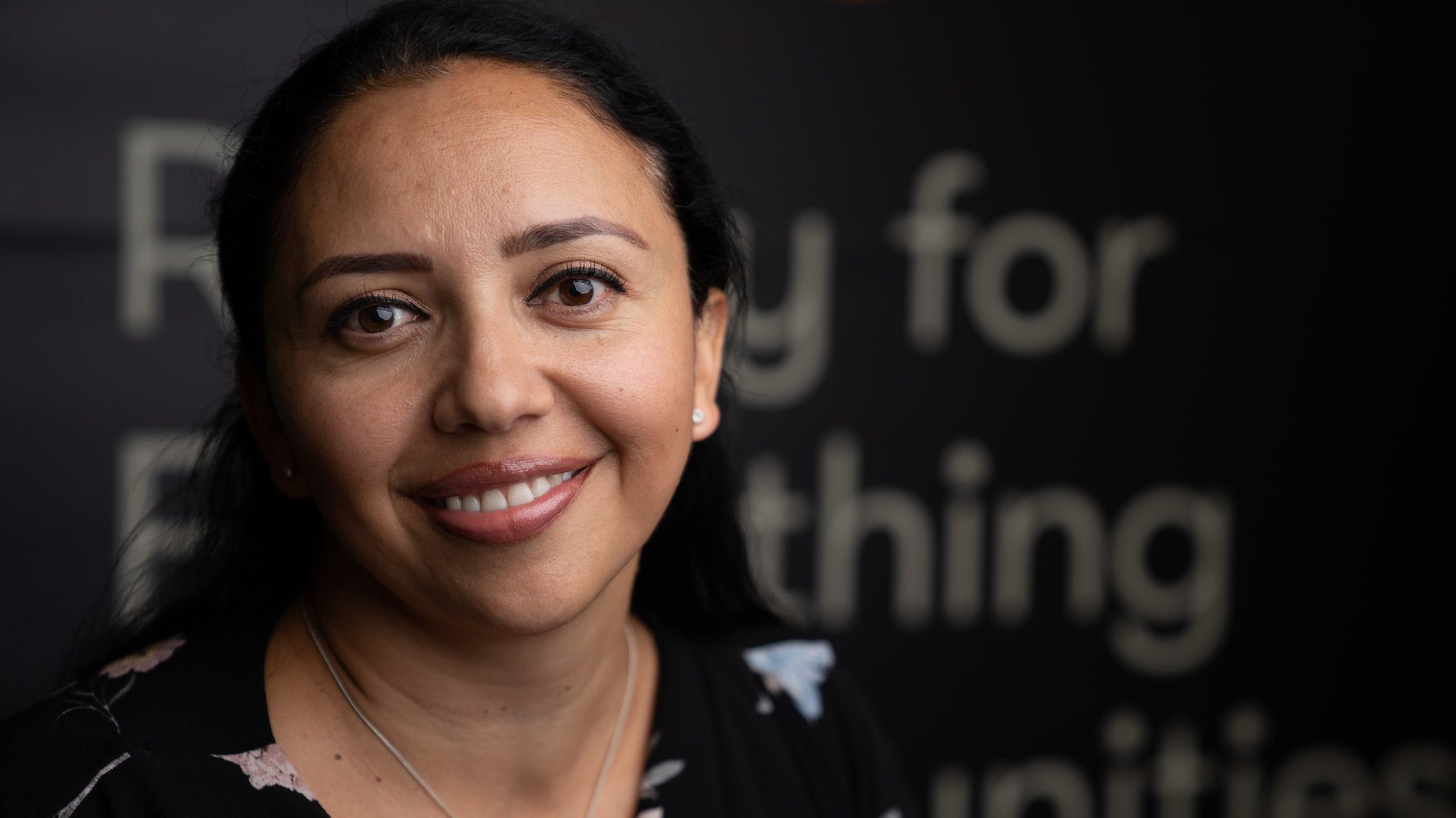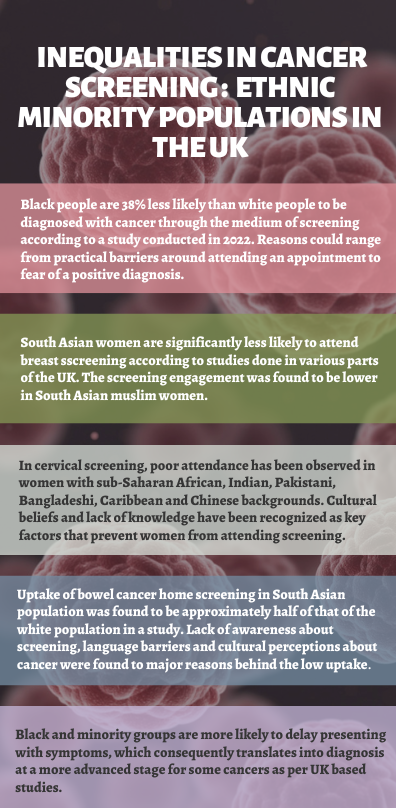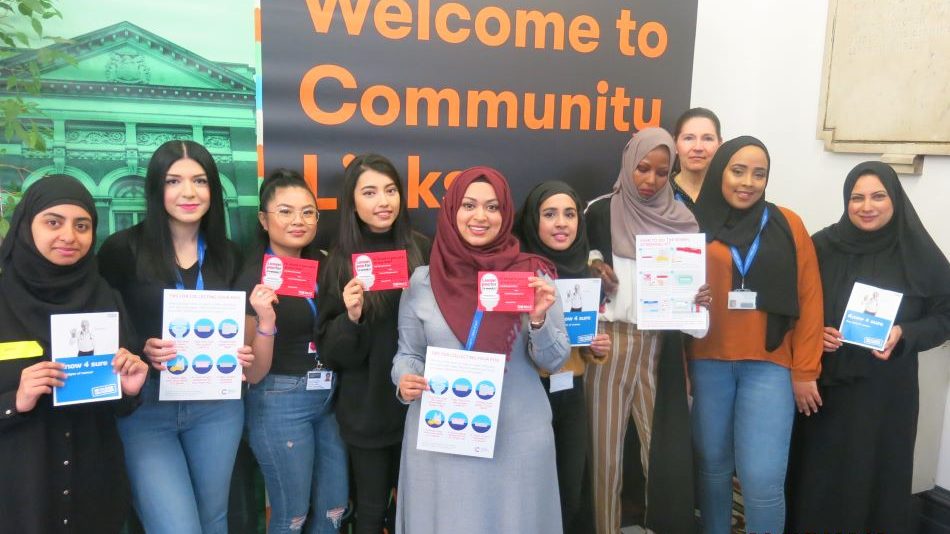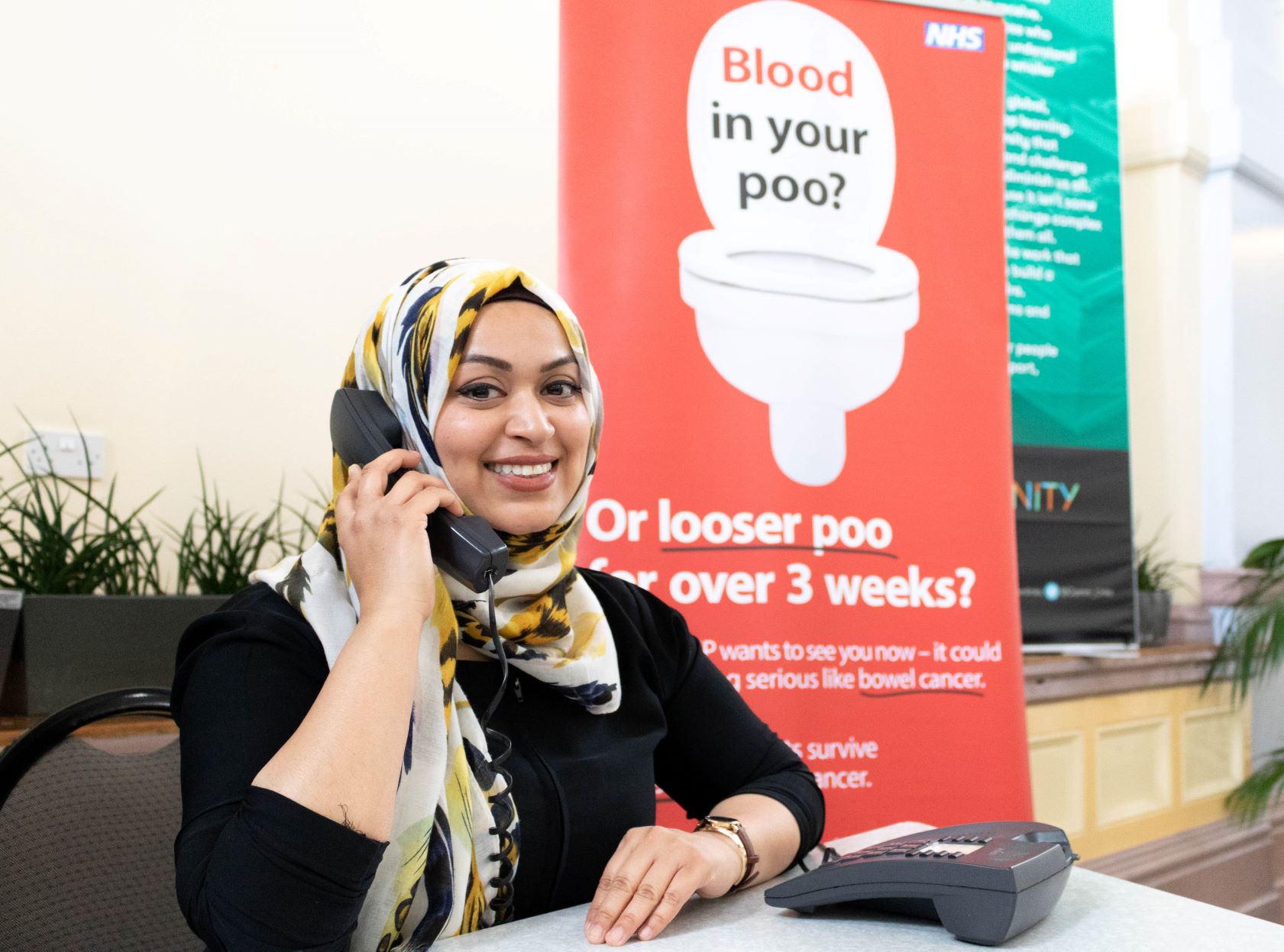The low uptake of cancer screening within ethnic minorities in the UK is a cause of concern. But there is an organisation that is striving to save these lives.
In 2013, Farah Dualeh made one of her routine phone calls to encourage cancer screening. The woman on the other end of the call recognized her and said, “I know you! You saved my life!”
Farah could not understand what she meant. The woman on call then explained how three years ago, Farah had called the same woman with the same purpose, to encourage her to go for screening. The woman had a lump in her breast but her GP had sent her back saying that she was too young to have cancer. But when she talked to Farah, she was encouraged to go for the assessment. She was diagnosed with breast cancer, promptly treated, and made a complete recovery.
“It’s incredible to think that a phone call has the power to change someone’s mind and save their life,”says Farah.
Farah is a part of a dedicated team of multi-lingual health facilitators that work at Community Links, an organisation that helps tackle social and health inequality in East London. The team works under the leadership of Zoraida Colorado, who is from Colombia and has led the initiative for the past 20 years.
Every year, Zoraida and her team reach out to thousands of people through telephonic calls in various parts of London to encourage take-up of cancer screening. The team consists of women from diverse local communities who can speak 21 languages among them. This helps them connect with people throughout the city who are often not able to access screening services because of language barriers.

“When we are able to break that barrier of language, we also break the cultural barrier,” says Zoraida. “Because it helps the people connect to us and it makes them feel that their issues will be better understood in terms of their beliefs and ideas.”
Several studies in the past decade have pointed out the low attendance of black, Asian, and minority ethnic communities across all kinds of cancer screening. Most of the research suggests cultural differences, misconceptions, lack of awareness, and language barriers as the major causes for this low uptake. Lack of tailored support contributes to the issue as well.
More than 860,000 people in England and Wales either cannot speak English well or at all. When they receive health-related invitations for taking a service like screening or home kits for self-testing, they might require assistance in understanding the contents of these letters. Lack of knowledge of the language also makes people hesitate to attend screenings.

“Often, they don’t even know what the invitation is about,” says Zoraida. “If they don’t have someone to interpret for them, they don’t feel comfortable coming to the clinics.”
Another major challenge that Zoraida observes in access to screening is the religious and cultural views of many communities that she reaches out to. For instance, women in many South Asian cultures regard family duties as paramount and disregard their health in favour of the family members. They might also follow advice from their fathers and husbands against attending the screening.
“There is a culture of shyness and modesty. Husbands may not allow their wives to go because they are uncomfortable with women showing their bodies to someone else,” she says.
Zoraida’s team listens to all the issues the patients face and offers them culturally appropriate solutions and advice to deal with the problems so that they can attend the screening. They guide the patients on how to navigate the clinics if they don’t know the language well and assure the women that their examination will be done exclusively by female staff. They also call up screening hubs to ensure that there are no men in the waiting area so that the women are not discouraged from attending.
“We make sure that we have a response for every barrier and that the information we give people is trustworthy,” she says
We are as diverse as the communities we reach out to,”
Zoraida Colorado
The facilitators usually have a script that they work through but are encouraged to adjust it according to their way of dealing with the patients and making it their own. This allows them to build an element of familiarity and trust with the people they reach out to.
“They know their community the best and it is really nice because it allows the patients to open up in these conversations and bring up all the issues that they have,” says Zoraida. “It’s the only way we can encourage them to go for screening, by having an open and honest conversation with them.”
The centre has also expanded its work to include a new way to engage with the public. They started a campaign in a school to encourage breast awareness by incorporating messages about the importance of self-examination and screening in parts of the school curriculum. It inspired a staff member to self-examine herself and she found a lump in her breast that turned out to be an early stage of cancer.
This timely detection made the students realise the importance of being breast-aware which increased their engagement with the campaign. Zoraida stresses the importance of such campaigns that can raise awareness at the right stage and also help students reach out to their parents to encourage them to take screening invitations from the NHS seriously.
“We always remind the girls to make sure that none of their family members put the screening invitation in the bin,” she says.

The reach-out program under Community Links has largely been successful. The intervention by the health facilitators from the organisation was able to increase screening participation by 17% in the very first year of their service as opposed to the expected increase of 7% according to a study done in 2014.
Zoraida feels that the program has been successful to this extent because of the sensitive approach of the program towards the people and the hard work of a multi-lingual team that is thoroughly trained and passionate about the cause.
“We are as diverse as the communities we reach out to,” she says. “Most of our staff has also had experience with cancer in some way or another. This inspires them to help make a difference.”

Community Links’ positive impact on improving screening attendance is noteworthy and highlights the need for more such organisations that can help create awareness and impart knowledge about cancer and the importance of timely detection.
While the organisation is working hard to create awareness around cancer screening in ethnic minority communities, they are limited by their geographical reach. Zoraida emphasises the importance of national campaigns in different languages that are targetted at ethnic minorities to dispel misconceptions and encourage more people to participate. “We need better campaigns,” she says. “And they should also address the younger populations who can convince their older family members to take this issue seriously.”
Zoraida feels it’s still a long way to go for the changes to become big enough to be counted but the uphill nature of the task does not deter her and her team from striving to make a difference. “Every life matters. I always tell my girls to never rush through these conversations,” she says “because you never know when you might be saving a life.”
